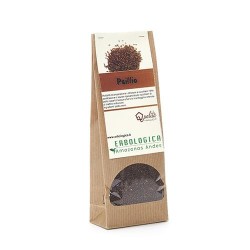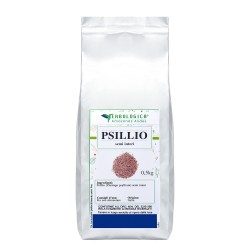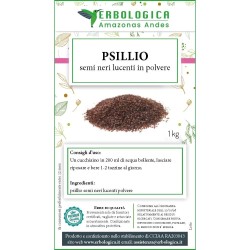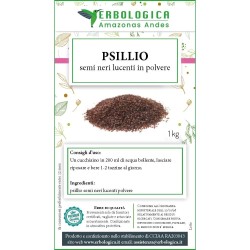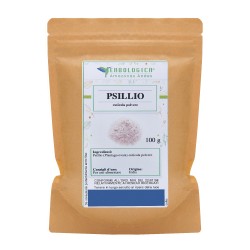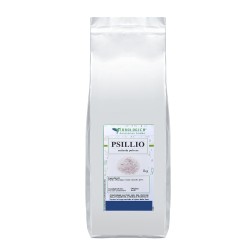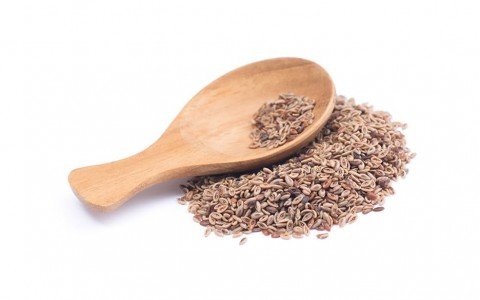
I semi di psillio: un rimedio naturale per la stitichezza e non solo
I semi di psillio, noti anche come semi di ispaghula, sono un rimedio naturale ricco di fibre solubili che può essere utilizzato per migliorare la salute intestinale e affrontare problemi come la stitichezza. In questo articolo, esploreremo le proprietà dei semi di psillio, i loro usi e le possibili controindicazioni.
Proprietà dei semi di psillio
I semi di psillio sono una fonte vegetale di fibre solubili che possono essere facilmente assimilate dal corpo. Questi semi, ricavati dalla pianta Plantago psyllium originaria dell'India, sono noti per la loro capacità di aumentare il volume delle feci e migliorare la motilità intestinale. Questo effetto benefico è dovuto alla presenza di mucillagini, sostanze che si trovano nel rivestimento esterno dei semi e che si "gonfiano" all'interno dell'intestino, aumentando la consistenza delle feci.
Oltre a migliorare la regolarità intestinale, i semi di psillio offrono anche altri benefici per la salute. Le mucillagini presenti nei semi hanno proprietà antinfiammatorie e lenitive che possono essere utili nel trattamento di problematiche intestinali come la sindrome del colon irritabile. Inoltre, i semi di psillio sono noti per il loro effetto nel tenere a bada il colesterolo e l'ipertensione, riducendo l'assorbimento dei grassi e abbassando la pressione arteriosa. Questi semi agiscono anche come un rimedio prebiotico, nutrendo la flora batterica intestinale e rafforzando le difese immunitarie. Infine, i semi di psillio hanno un effetto depurativo, favorendo l'eliminazione delle tossine dall'organismo.
Usi dei semi di psillio
I semi di psillio possono essere utilizzati in diversi contesti per migliorare la salute intestinale e promuovere il benessere generale. Uno dei principali utilizzi dei semi di psillio è nel trattamento della stitichezza. Grazie alla loro capacità di aumentare il volume delle feci e migliorare la motilità intestinale, i semi di psillio possono aiutare ad alleviare la stitichezza e favorire un transito intestinale regolare. Tuttavia, è importante utilizzare i semi di psillio nel modo corretto e per un periodo di tempo limitato per ottenere i migliori risultati.
Oltre alla stitichezza, i semi di psillio possono essere utilizzati anche in caso di diarrea. Contrariamente a quanto si potrebbe pensare, i semi di psillio possono aiutare ad assorbire i liquidi all'interno dell'intestino, contribuendo a regolarizzare la consistenza delle feci durante episodi di diarrea.
I semi di psillio possono essere utilizzati anche come parte di una dieta dimagrante. Grazie alle loro proprietà di aumentare il senso di sazietà, i semi di psillio possono contribuire a ridurre l'appetito e il desiderio di snack poco salutari, favorendo una sana perdita di peso.
Come assumere i semi di psillio
Per ottenere i migliori risultati dall'assunzione dei semi di psillio, è importante utilizzarli nel modo corretto. I semi di psillio possono essere acquistati sotto forma di polvere, semi interi o capsule. Indipendentemente dalla forma scelta, è fondamentale assumere una quantità sufficiente di acqua durante l'assunzione dei semi di psillio.
Se si utilizzano i semi interi o la polvere di psillio, si consiglia di mescolarli in un bicchiere di acqua tiepida e lasciarli riposare per alcuni minuti. Successivamente, è possibile bere la soluzione e seguire con l'assunzione di altri due bicchieri d'acqua. Questo processo dovrebbe essere ripetuto due volte al giorno, preferibilmente lontano dai pasti e dall'assunzione di farmaci. Alcune persone preferiscono anche lasciare i semi di psillio in ammollo durante la notte e bere la soluzione al mattino a digiuno.
Se si preferisce utilizzare i semi di psillio sotto forma di capsule, è importante seguire le istruzioni riportate sulla confezione per quanto riguarda il dosaggio. Anche in questo caso, è consigliabile bere molta acqua dopo l'assunzione delle capsule.
Controindicazioni dei semi di psillio
Nonostante i numerosi benefici dei semi di psillio, ci sono alcune controindicazioni da tenere in considerazione. Non è consigliabile assumere i semi di psillio in caso di occlusione intestinale, poiché potrebbero peggiorare la situazione. Inoltre, è importante non eccedere con le quantità di semi di psillio, poiché un uso eccessivo può causare disturbi intestinali come la pancia gonfia e il meteorismo.
Se si stanno assumendo farmaci, è consigliabile consultare il proprio medico prima di utilizzare i semi di psillio, poiché potrebbero interferire con l'assorbimento dei farmaci o potenziarne gli effetti. Inoltre, è consigliabile evitare l'assunzione prolungata di semi di psillio e di altri lassativi, in quanto potrebbe portare all'inerzia intestinale o alla dipendenza da lassativi.
Dove acquistare i semi di psillio
I semi di psillio possono essere acquistati presso negozi specializzati in prodotti biologici, farmacie o negozi online specializzati nella vendita di integratori alimentari naturali. Prima di effettuare un acquisto, è importante leggere attentamente le etichette e preferire prodotti biologici. I prezzi dei semi di psillio possono variare a seconda del prodotto e della quantità contenuta nella confezione, ma in generale sono abbastanza accessibili.
Conclusioni
I semi di psillio sono un rimedio naturale ricco di fibre solubili che può aiutare a migliorare la salute intestinale e affrontare problemi come la stitichezza. Grazie alle loro proprietà, i semi di psillio possono favorire un transito intestinale regolare, ridurre l'assorbimento dei grassi, abbassare il colesterolo e promuovere la salute della flora batterica intestinale. Tuttavia, è importante utilizzare i semi di psillio nel modo corretto e consultare un medico prima di utilizzarli in caso di problemi di salute o l'assunzione di farmaci. Con un uso corretto e moderato, i semi di psillio possono essere un valido alleato per il benessere intestinale e generale.


